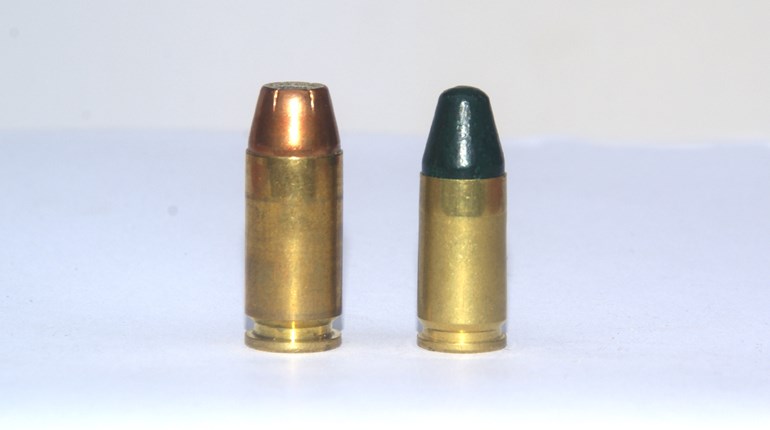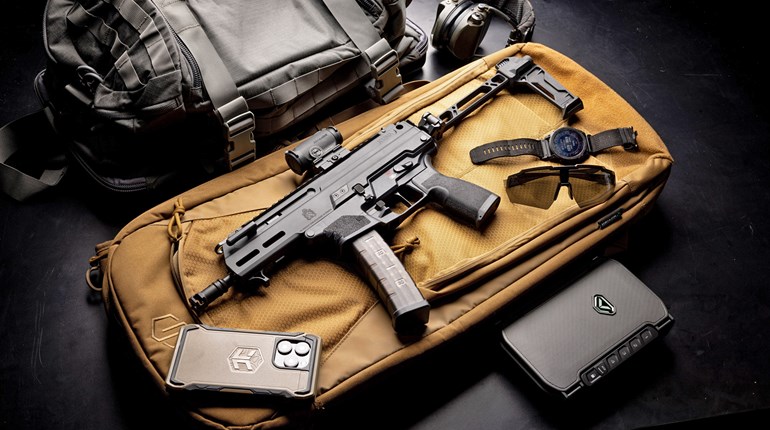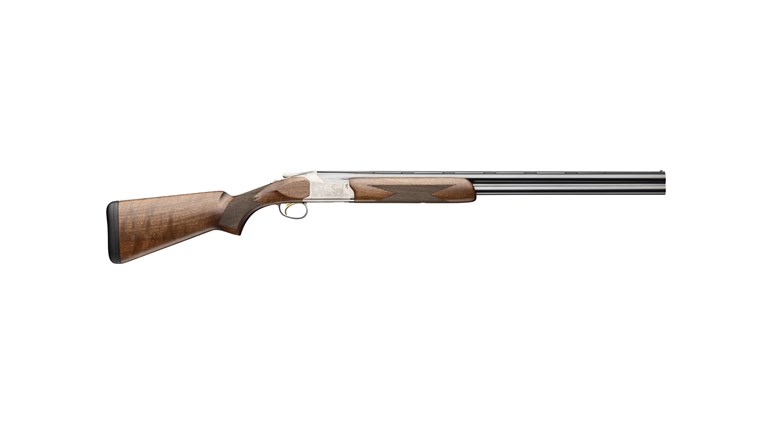
Over the last couple years, I’ve been lucky enough to spend a bunch of hands-on time with the commercial variants of serious finalists for the U.S. Army’s Modular Handgun System (MHS) program. In the pages of this magazine, I’ve reviewed the SIG Sauer P320 (in its X-Carry flavor), Smith & Wesson’s M&P9 M2.0 and the FN 509. Therefore, it borders on karma that my inbox should land an assignment to do a feature-length review of the Glock G19X, the commercial-market offering that is, in essence, Glock’s MHS contender sans thumb safeties. I’ve become a one-person ex post facto MHS-evaluation committee.
Of all the likely MHS finalists, the Glock G19X was the only one whose very design stirred controversy in the gun-hobbyist community. The FN and Smith & Wesson guns were pretty conventional refreshes of existing designs. The SIG P320 didn’t really generate any controversy with its basic design, either. Everyone suspected SIG was going to enter the polymer, striker-fired, cop-gun market, and the model essentially supplanted a gun that the market had stayed away from in droves. The only controversy around the P320 happened with the “voluntary upgrade” announcement, and that was after it had landed the big contract.
The Glock MHS entrant, the one that became the Glock G19X, drew howls from many of the commenters in the corners of the internet where I lurk as soon as pictures of the gun became available. (My howls may have been part of the chorus.)
See, for a while now, a popular cool-guy Glock modification in these circles has been to take a full-size G17 and chop the grip down to take 15-round G19 magazines, usually removing the finger grooves and texturing the frame while you were at it. The reason was to make the gun easier to conceal when carrying IWB, since the grip is the part that determines concealability. The finished product was (unofficially) referred to as a “19L,” riffing off Glock’s “17L” designation for its original longslide.
Now here comes Glock with a new factory gun with the finger grooves gone and a decently textured frame…and the proportions are 180 degrees out from the cool-guy 19L. Instead, the new Glock G19X has the compact slide of a G19 mated to the full-length grip of a G17. In fact, the grip is slightly longer than that on a G17, due to a downward-protruding lip at the front of the mag well. (More on that later.)

Perhaps riffing on the marketing success of car-based SUVs, Glock claims that the “X” stands for “crossover.”
As of this writing, the Glock G19X comes in any color you want, as long as the color you want is Coyote Tan with black accents, although a slightly different, all-black version designated the G45 has just been introduced. The slide is finished using a proprietary nPVD process that results in a color reminiscent of the “Burnt Bronze” that is so popular in this current year. (A side effect of the process is that the underside of the slide has a purple sheen reminiscent of machinist’s marking die. This unusual side effect is invisible unless the pistol is field-stripped.)
The frame is molded from a matching Coyote Tan polymer, as are the magazines. Up to now, the only people with Tactical Dirt Colored factory Glock mags were JSOC door-kickers, but with the launch of the G19X, they’re available to the general public. Like all Gen4/5 Glocks, the Glock G19X ships with three magazines. One of them is a regular, flush-fit 17-round magazine, the other two are 19-rounders thanks to color-coordinated, factory two-round extensions. Aft of the magazine well, the normal Glock backstrap channel is filled with a removable Coyote Tan plug featuring a molded-in lanyard loop.

The small parts in the frame and slide, such as the takedown and slide stop levers, trigger and mag release, are all normal Glock black, as is the 4-inch Glock Marksman barrel. Also finished in black are the three-dot tritium night sights, which is the only factory-sight option on the model at this time.

These are solid, usable sights and a vast improvement over the standard plastic, cup-and-ball sights found on base Glock models. However, it’s a shame that the manufacturer went with the regular three-dots instead of the excellent AmeriGlo-sourced “BOLD” sights found as a factory option on Glock’s new Gen5 models. Presumably this is for authenticity to the MHS program guns.
Speaking of Gen5 guns, as can probably be guessed from the presence of ambidextrous slide stops and the absence of finger grooves, the Glock G19X is built on Glock’s updated “Gen5” architecture, which is the most ambitious refresh of the basic lockwork since the original “pebble-grip” Glocks hit our shores in the 1980s.

Like all Gen5 Glocks, the trigger pull on the Glock G19X out of the box seems an improvement over earlier models. Trigger takeup weight seems more consistent over the length of travel and the rolling break is a little more defined. Basically, the typical Gen5 trigger feels like an earlier generation Glock trigger on which someone has performed a cautious and conservative carry-oriented trigger job. The test gun’s trigger broke pretty consistently at an actual 5.25-5.5 pounds on my RCBS fish scale, rather than the 6-plus pounds that earlier Glock “5.5-lb” triggers did.
While the Gen5 architecture features ambidextrous slide stops, the magazine release is merely reversible, à la the Gen4 unit. Glock had earlier toyed with true ambidextrous magazine releases on the original Glock 21SF, itself an offshoot of the Joint Combat Pistol program for SOCOM, but those required special magazines and have since faded into collectability. Unlike the earlier gun, the Glock G19X can use any regular 17-round or greater-capacity Glock magazine.
Well, almost any. Here’s where that protrusion on the bottom of the frontstrap comes into play. While it does ensure that even someone with paws like Andre the Giant won’t pinch their pinkie between the grip and the magazine during a speed reload, and it also ensures that even gloved hands won’t jostle the protruding plus-two magazine extensions, it nonetheless causes a problem.

Basically, despite having a G17-length grip and being built on Gen5 architecture, the magazines from a Gen5 Glock G17 won’t work in the Glock G19X. The new G17 magazines have a floorplate that protrudes too far forward and impinges upon this lip before the magazine is inserted far enough to lock in. However, the G19X is fully compatible with all Gen4 and earlier Glock G17 magazines with factory floorplates. It also worked fine with Magpul’s 17-round GL9 magazine, even when it was fitted with the protuberant Apex aluminum baseplate.
The G19X weighed in at 25 ounces (with an empty magazine) on my postal scale. For comparison’s sake, I checked it against my carry gun, a Gen4 G19, and found that the longer grip and magazine only added a single ounce. When topped up with a full tank of ammunition—19+1 rounds of Speer Gold Dot 124-grain +P—the gun weighed a tenth of an ounce less than 34 ounces. That’s still a quarter-pound lighter than my Springfield Armory Professional 1911 with an empty magazine.
With no interchangeable backstraps on the gun, it’s 7 inches from the tip of the muzzle to the tip of the frame tang, although that’s not the rearmost part of the gun, as the arch of the grip backstrap protrudes another half inch past that. From the top of the rear sight to the bottom of the plus-two floorplate is 6.25 inches.

Interestingly, between the time it was announced and the time I got around to requesting a test gun, I noticed that the opinion of a number of the cognoscenti who had initially pooh-poohed the gun as being built backward began to change. Early adopters were reporting that the bigger grip made the gun more controllable for them. People were reporting Bill Drill times better than with their regular G19s, even. This seemed unusual until I handled the test Glock G19X side by side with my carry G19 and took it to the range.
You see, the G19 grip is not only shorter than the G17 grip, but it’s also contoured differently. For a shooter who wears medium or large gloves, the arch of the 19’s grip can hit right in the heel of the hand, which is why there’s a cottage industry of people doing grip reductions and straightening that area out.
On the Glock G19X, with its G17 grip contour, the most-swollen part of the arch is below the hand for all but the hugest of paws. This alters pointing and grip characteristics in almost the same way as the flat mainspring housing versus arched mainspring housing do on the 1911. At the risk of spoiling the ending of the review here, I use a flat mainspring housing on 1911s and noticed an improvement in pointability going from my G19 carry gun to the G19X.
At the range, shooting the G19X without any backstraps, the gun proved quite easy to control. Despite still recovering from a broken collarbone and therefore not having anywhere near full strength in my support hand, the gun tracked surprisingly flat compared to the Gen4 G19. The difference would probably not be as pronounced for the small-of-hand.

Another advantage to the longer grip is that it eliminated my chances of getting a pinkie finger between the floorplate and the magazine well opening during a speed reload. If you have never had this happen, it’s an experience I don’t recommend. I had thought myself to be immune to the phenomenon as my fingers are slim enough to not hang off the frontstrap of a G19, but I managed to finally give myself a pretty good blood blister in a recent class with the side of the magazine floorplate. On the Glock G19X, this looks to be a physical impossibility for me.

The Marksman barrel in this one delivered good accuracy under less-than-perfect conditions. Without a sandbag rest, your correspondent was forced to shoot from kneeling, resting the pistol on the lane trays at the local indoor range. At a range of 15 yards, the gun was putting three or four rounds into 1- to 1.5-inch groups, with the last one or two opening the group to 2 inches or a little more. That’s telling me that off bags, those numbers would tighten considerably, and out of a mechanical rest they’d likely be cloverleafing at that distance.
So in the course of about half a case of ammo, I’ve had pretty much a total change of heart on this gun, and it’s not just because I think the color is cool. There’s every chance that by the time you read this article, the Glock G19X will have replaced the Gen4 G19 that is in my holster now.






































